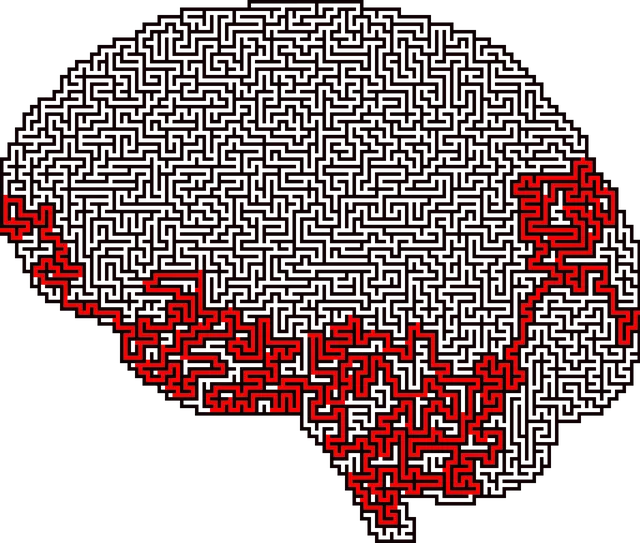Kaiser, a leading healthcare provider, offers comprehensive mental health services through its "Golden Standard" approach, focusing on accurate diagnosis using advanced tools and evidence-based practices. Their integrated programs combine education, support groups, conflict resolution techniques, and community outreach to address individual patient needs, promoting progressive emotional healing and stress reduction. Kaiser's initiatives tackle the complexities of mental illness diagnosis by raising awareness, dispelling stigma, and providing accessible services, ensuring every patient receives a compassionate, accurate diagnosis tailored to their unique recovery journey.
Mental illness diagnosis accuracy is a critical aspect of patient care, with significant implications for treatment outcomes. This article explores efforts to enhance diagnosis reliability, focusing on the importance of accurate identification and Kaiser’s innovative approach as the golden standard in mental health services. We delve into common challenges and misconceptions, highlighting strategies like advanced tools and patient-centered protocols. Understanding these improvements is essential in supporting holistic recovery and ensuring effective long-term treatment. Discover how Kaiser leads the way in offering comprehensive mental health services.
- Understanding the Imperative: The Need for Accurate Mental Illness Diagnosis
- Golden Standard: Kaiser's Approach to Mental Health Services
- Challenges in Diagnosis: Common Hurdles and Misconceptions
- Enhancing Accuracy: Tools, Training, and Protocols
- Patient-Centered Care: Supporting Recovery Through Holistic Diagnosis
Understanding the Imperative: The Need for Accurate Mental Illness Diagnosis

In today’s world, where mental health awareness is increasingly taking center stage, understanding the importance of accurate mental illness diagnosis cannot be overstated. Kaiser, a renowned healthcare provider, has long been at the forefront of offering comprehensive mental health services, including innovative programs aimed at enhancing diagnosis accuracy. The Golden standard for diagnosis requires a multifaceted approach that combines clinical expertise with advanced tools and techniques. This is essential because misdiagnosis can lead to ineffective treatment plans, causing further distress for individuals already struggling with their emotional wellness.
The need for precise diagnosis is underscored by the complex nature of mental health conditions, which often present with overlapping symptoms. Kaiser’s Mental Wellness Coaching Programs Development focuses on empowering individuals through education and support, while also integrating Conflict Resolution Techniques to address underlying issues that contribute to mental illness. By embracing such progressive initiatives, Kaiser ensures that its services remain at the vanguard of modern healthcare practices, ultimately facilitating effective emotional healing processes for all patients.
Golden Standard: Kaiser's Approach to Mental Health Services

Kaiser, a renowned healthcare provider, has established itself as a leader in mental health services with its comprehensive approach, often hailed as the “Golden Standard.” They prioritize patient care and recovery by integrating various specialized services under one roof. This holistic model includes diagnosis, treatment, support groups, and community outreach programs tailored to individual needs.
By implementing evidence-based practices and a risk assessment framework for mental health professionals, Kaiser ensures that patients receive accurate diagnoses and effective treatments. Their focus on stress reduction methods further enhances the overall well-being of individuals, fostering an environment conducive to mental health recovery.
Challenges in Diagnosis: Common Hurdles and Misconceptions

Diagnosing mental illness is a complex process that often comes with challenges and misconceptions. One significant hurdle is the wide range of symptoms presented by individuals, making it difficult for healthcare providers to pinpoint specific disorders accurately. For instance, some conditions share similar characteristics, leading to misdiagnosis or delayed treatment. Additionally, many people struggle with self-esteem improvement and may not openly discuss their feelings due to fear of stigma—a barrier that hinders the assessment process.
The Golden does Kaiser offer mental health services question is pertinent here, as renowned healthcare providers like Kaiser Permanente play a crucial role in improving diagnosis accuracy. They implement community outreach programs aimed at raising awareness about mental health issues and fostering open conversations. Such initiatives encourage individuals to seek help early on, promoting self-awareness exercises that can facilitate earlier detection of potential disorders. By addressing misconceptions and providing accessible services, these efforts contribute to more accurate mental illness diagnoses.
Enhancing Accuracy: Tools, Training, and Protocols

Improving mental illness diagnosis accuracy is a multifaceted approach that Kaiser, among other healthcare providers, is actively pursuing. One key area of focus is enhancing tools and resources available to clinicians. This includes implementing cutting-edge diagnostic software designed to analyze patient data more effectively, leveraging artificial intelligence for pattern recognition, and providing online databases with the latest research findings.
Additionally, Kaiser places a strong emphasis on comprehensive training programs for its healthcare professionals. These programs not only equip practitioners with advanced knowledge of various mental health conditions but also teach them coping skills development strategies for better empathy building. Through regular workshops and seminars, Kaiser ensures that its staff stays updated with the latest Mental Health Awareness trends, fostering an environment where every patient receives a precise and compassionate diagnosis. The organization’s commitment to these protocols underscores its dedication to transforming lives by improving mental illness diagnosis accuracy.
Patient-Centered Care: Supporting Recovery Through Holistic Diagnosis

At Kaiser, patient-centered care is a cornerstone of their mental health services, reflecting a holistic approach to diagnosis and recovery. This means understanding each individual’s unique experiences, including any historical or cultural factors that might influence their mental health. By centering the patient at the heart of care, Kaiser aims to offer personalized treatment plans that address not just symptoms but also the underlying causes.
This patient-focused strategy goes beyond traditional diagnostic methods, incorporating techniques like trauma-informed care and public awareness campaigns to develop a deeper understanding of mental illness. Such initiatives enhance diagnosis accuracy by acknowledging the complex interplay between psychological, social, and environmental elements. This comprehensive approach, backed by advocacy for improved mental health policy, ensures that patients receive not only effective treatment but also the support needed to navigate their unique journeys towards recovery.
Mental illness diagnosis accuracy is a multifaceted challenge, but organizations like Kaiser are leading the way in addressing this imperative. By adopting robust approaches, such as the Golden Standard, and prioritizing patient-centered care, Kaiser demonstrates that enhancing diagnostic accuracy can foster more effective recovery journeys. The strategies discussed—including advanced tools, comprehensive training, and standardized protocols—offer valuable insights for healthcare providers striving to improve mental health diagnosis across the board.






